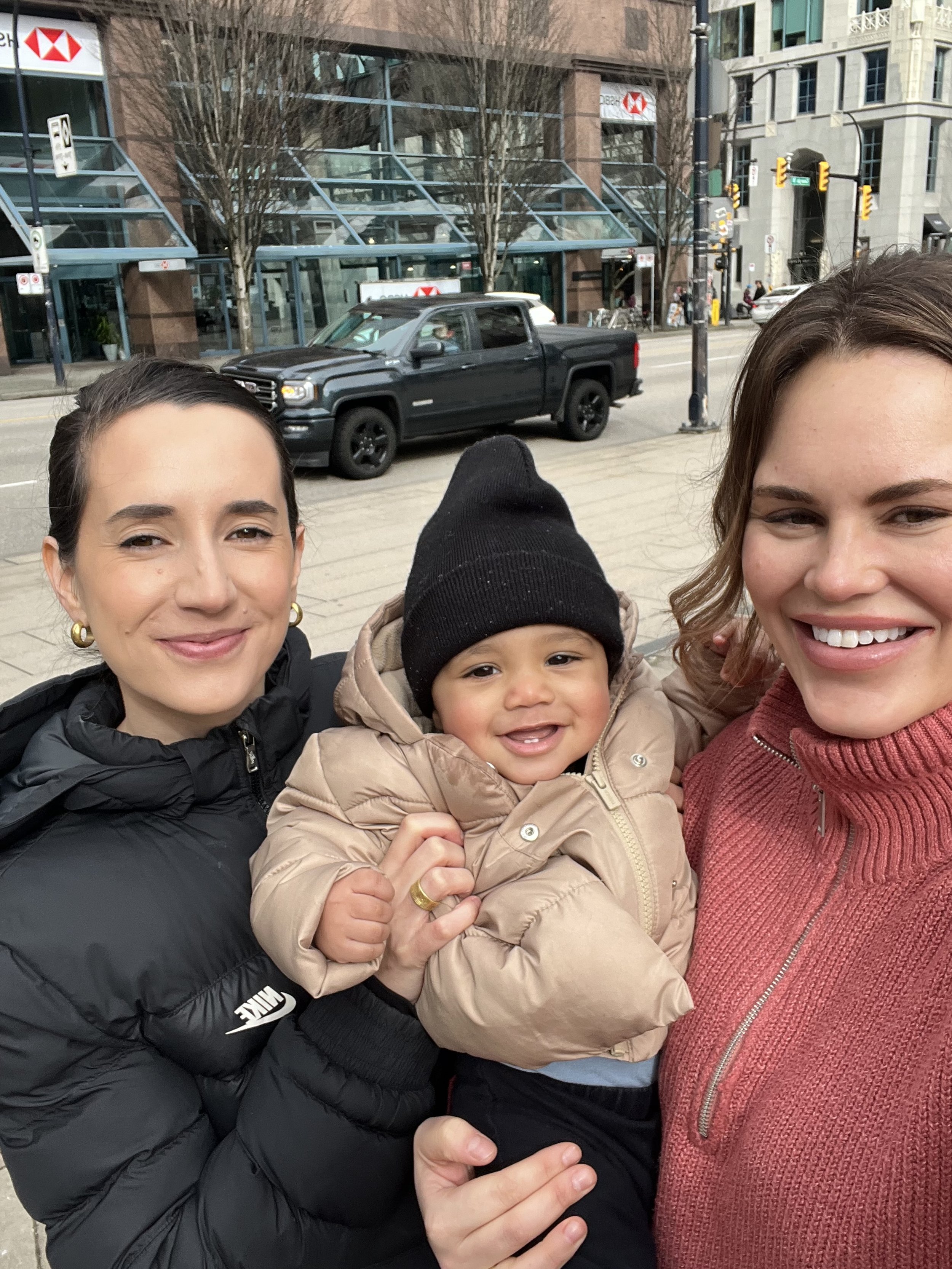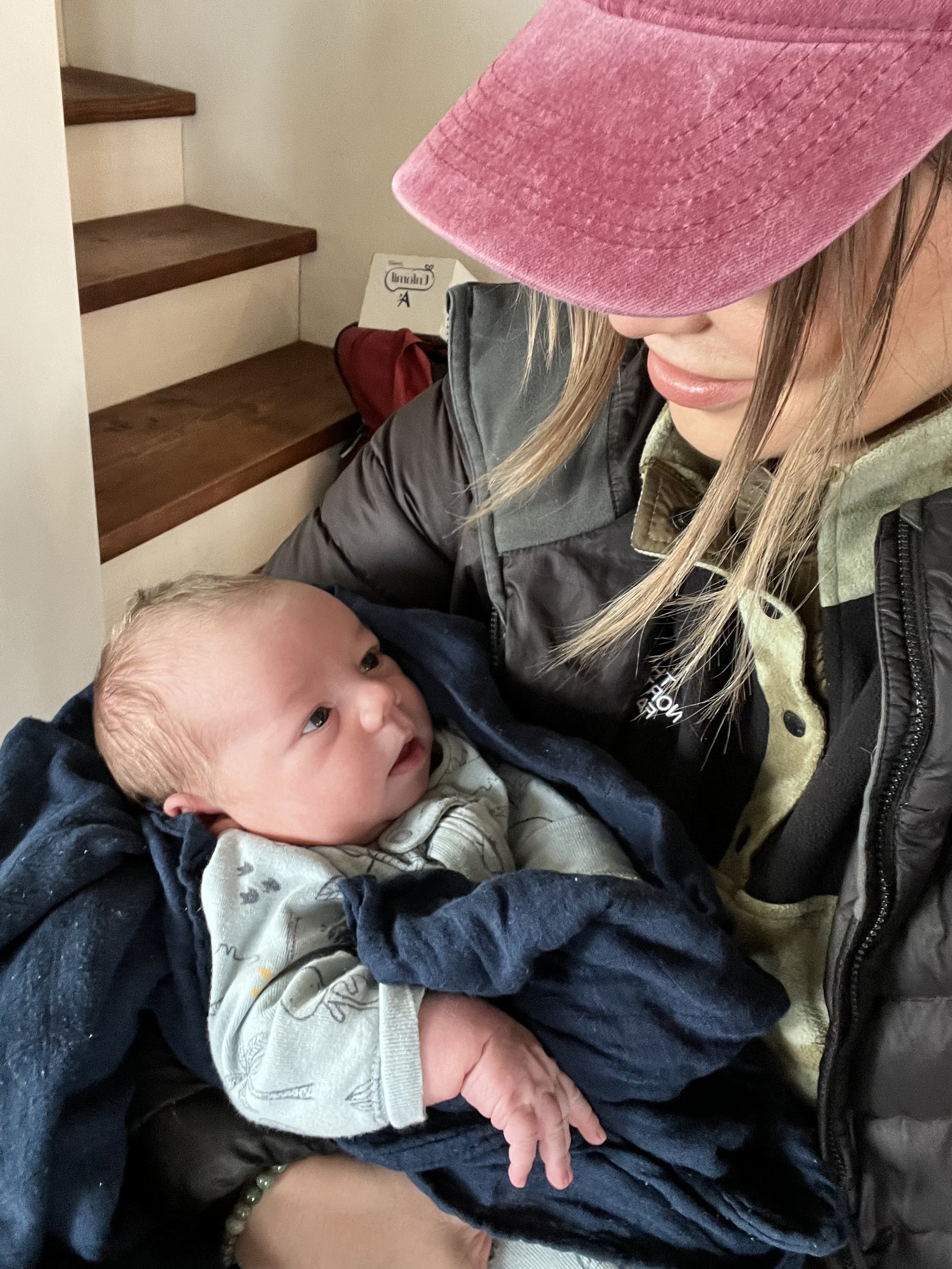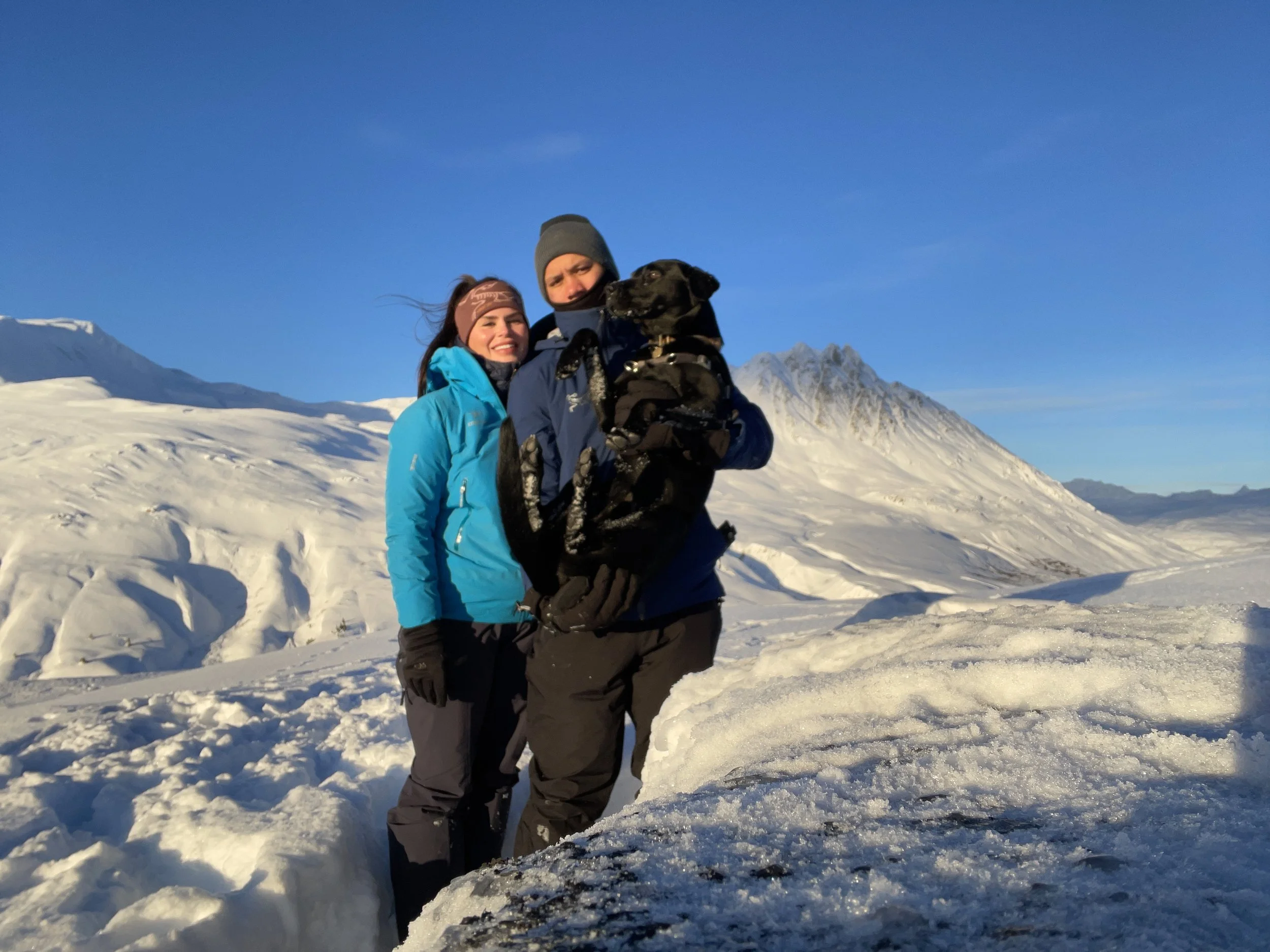Childless
Little me ‘breastfeeding’ my monkey, Mary, and my baby doll, Jesus (lol)
I shifted in my seat as Ms. Fraser, my high school guidance counsellor studied the computer screen and listed my university options. I wasn’t focussed, daydreaming about something or other. At some point she asked what I wanted to do with my life and I told her, unabashed, that I wanted to get married and have kids. “In good time,” she answered. Perhaps an eyebrow went up. I went to a high school that prided itself on its 100% university acceptance rates, so my answer wasn’t the right one.
I loved dolls when I was little. In particular, the real-life baby dolls, complete with the hospital wristbands and newborn wrinkles. I had two: Jesus and Rose. The way I saw it, my primary responsibility was to care for my babies. I was obsessed. Swaddling, feeding, changing phantom dirty diapers. I propped them up on pillows, one on each side, and ‘breast fed’ them, like my mum did at the time with my twin brothers. Somehow, it seemed I’d been born with maternal instincts in overdrive.
In fairness, my ambitions did extend beyond motherhood: I would have a farm and be a neonatal doctor. I would ride my horse to work.
In my early twenties, I had a serious boyfriend. A guy my age who was absolutely petrified by the idea of ‘settling down’, and with hindsight, I see his point. However, at the time, I’d worked myself into a tizzy – one fueled by my competitive nature. I didn’t just want to be a mother, I needed to be a mother. I needed it *yesterday*!
Bathing my baby doll
I was in university, focussed on collecting degrees, but the idea of motherhood was right there with me. I struggled when it was brought up. While most of my friends were carefree, clubbing and traveling, or advancing their careers, I played the game, but in reality, I was fixated on my goal: Motherhood. It was my primary objective. Pregnancy announcements on social media would drive a stake into my heart and would reaffirm my belief that I was far from where I ‘needed’ to be.
The idea of being childless never occurred to me. In fact, I told my high school guidance counsellor that I had a contingency plan; if I didn’t have children by age thirty, I’d find a donor. You have to admire the naïve determination I had at seventeen.
When C and I moved north, we got a new truck. A Tacoma with an extended cab. I distinctly remember our discussion about the practicality of the extra space – groceries, camping, a dog, a car seat. Kids were part of our plan for the future; they were a given.
And then in 2020, a medical diagnosis impacted everything.
Nothing in life is certain. This is something we know, but tend to ignore, and even forget all together. This is certainly true for me. I like to plan and once I have a plan, I like to stick to it. Changes in direction are not easy for me. My diagnosis resulted in a period of emotional turmoil, personal scrutiny and self-reflection. C and I had many, long, deep and sometimes difficult discussions.
One of the wonderful children in my life — my best friend’s son, Odell.
The decision to have children is one that can carry a great deal of emotional weight. For some people, the answer is clear, but for many it is challenging. It’s a decision that has moral implications, and, in that it’s a lifelong commitment, it’s certainly not a decision that can be taken lightly. As C and I worked through the process that resulted in our decision not to have children, I found myself thinking about societal expectations regarding family units.
Questions like, “When are you having children?” or “When will you start a family?” are common and operate on the assumption that having children is the norm and, as such, is requisite for societal acceptance. And if the response is that children are not in the cards, there are the shallow and sometimes hurtful rebuttals: “But who will look after you when you’re old?” or “What about your legacy?” or, “You’d be such a good mom!” or, “But you’d have such beautiful (or athletic, or smart) kids!”.
The questions are well-meaning and genuine, and I don’t think their impact is considered by the asker, but I suggest that it should be. There are many reasons people are childless and sometimes those reasons are highly personal and even painful.
The process of sharing with friends and family that we will not have children was difficult, and not always linear. I felt overwhelmed with competing emotions. Despair and hope. Jealousy and love. Loneliness and support. People close to me were welcoming babies into the world and I grappled with conflicting feelings. I wanted to say that I felt nothing but happiness, but I couldn’t, and I hated that. And then a dear friend said to me, “Hilary, give yourself time to grieve the future you thought you’d have.” Those words have stuck with me and, at the time, they helped me give myself the permission I needed to feel.
My nephew, George, was born on my birthday this year. What a gift!
Childlessness is a loaded term. It’s what some come to by choice, and some are forced into. Some may find peace or even strength in it or with it, and some do not. Ultimately, though, it is an individual (or partnered) decision and one that is deserving of respect and compassion. And yet, those who are childless continue to be met with the expectation and belief that they are in some way lacking or missing out.
Both C and I are at peace with our decision, but, even still, we are confronted with well-intentioned yet problematic suggestions to try x, y, z remedy or procedure to ‘complete our family’. The underlying assumption is that we cannot possibly be happy or fulfilled or whole without children. I recall sharing with someone the medical diagnosis and subsequent processing C and I went through to arrive at the decision that we would not have children only to be met with “What about adoption?”. Had I not been well into my personal healing process at this point, I might have have snapped.
“When are you and C going to have kids?” or a variation thereof, is a question that is posed every single time I open myself to questions online. I’m no longer surprised by it, and consider it an opportunity to explain the challenging nature of this kind if personal decision and the potential emotional fallout that may result from their question. After all, some years ago, I would have asked the question myself, blithely ignorant of the possible complexities in others’ personal lives.
My family. Whole and complete just the way it is.
Last month, my answer to this question elicited hundreds of heartfelt responses from people sharing their own experiences with similar queries, or with infertility, or with non-traditional family structures, or with loss, or with the large-scale societal inability to celebrate or at least empathize with intentional childlessness. These messages reminded me that many, many people navigate this sometimes-painful road, often in silence. It reminded me of the stigma and the assumptions and the questions people face about something they may be struggling with privately. And it reminded me that there are many who are childless by choice and that this continues to be seen as a deficit.
I have no horse. I don’t live on a farm and I’m not a doctor. I continue to love babies and children. I have five beautiful nieces and nephews whom I love and appreciate. I cherish my memories of Rose and Jesus, my babies, and I love that life is filled with surprises that flummox and confuse and challenge. Without struggle, there is no growth. I have moved on, and am as happy with where I am now as I was with the dreams of my childhood.





